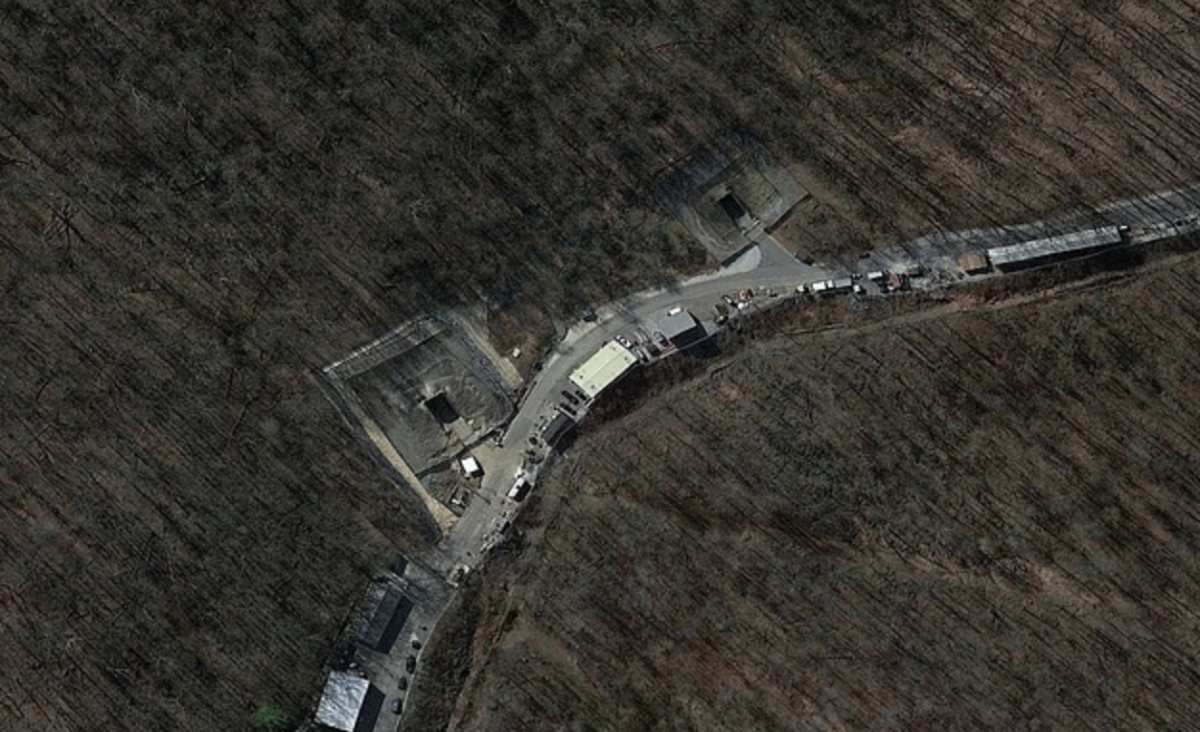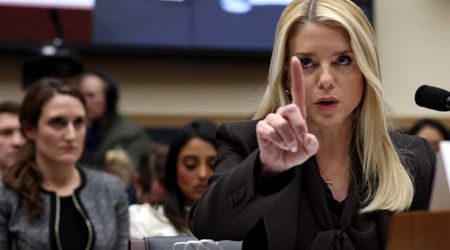Donald Trump to retreat to one of three secret sites if nuclear war breaks out, doomsday plans reveal

WASHINGTON, DC: If World War III ever breaks out, don’t expect President Donald Trump to be posting updates from a bunker with Wi-Fi issues — because the US already has a top-secret escape plan in place.
Trump — or any sitting president — could be whisked away to one of several hidden, fortified bunkers buried deep across America. These are part of the government's hush-hush survival strategy called the Continuity of Operations Plan, or COOP for short.
The classified playbook isn’t about keeping everyday Americans safe; it’s focused on making sure top brass like the president, military leaders, and federal agencies can still pull the strings when everything else is crumbling.
From secure bunkers in Colorado, Pennsylvania, or Virginia, the Trump administration — or whichever is in charge of the White House — would continue governing even if nuclear fire rained down, the Daily Mail reported.
'Doomsday plane' spotted flying over the US ahead of Iran strike
On June 17, aviation trackers noticed the infamous Boeing E-4B "Nightwatch" — also known as the “doomsday plane” — soaring through the skies from Louisiana to Maryland.
Dear Americans, did you know that...? The US President's "doomsday plane" E-4B has landed near Washington, as reported by Defence Index.
— HeyTam (@HeyTam) June 18, 2025
The last time such actions took place was on September 11, 2001, after the terrorist attack on the "twin towers".This plane can withstand a pic.twitter.com/YQlMXyMtsI
The aircraft is notably a flying command post specifically built to survive a nuclear strike and keep the top dogs in control of the military.
Four days later, tensions skyrocketed when the US military hit three nuclear sites in Iran, despite clear warnings from China and Russia that such a move could ignite World War III.
That’s where COOP comes in. It ensures that even if chaos hits the fan — whether from nuclear war, a natural disaster, a terrorist attack, or even another pandemic — the US government doesn’t skip a beat.
According to the Federal Emergency Management Agency (FEMA), COOP ensures “the capability exists to continue essential agency functions across a wide range of potential emergencies.”
Where would Donald Trump take shelter if the nukes start dropping?
Uncle Sam has some pretty solid real estate lined up for surviving Armageddon. The US has three main bunkers ready to house the nation’s leaders if things get apocalyptic.
1. Mount Weather Emergency Operations Center in Virginia: This FEMA-run site is reportedly packed with comms equipment and facilities for civilian leaders. It’s the go-to bunker for keeping the public connected, even if civilization as we know it crumbles.

2. Raven Rock Mountain Complex in Pennsylvania: We can think of this one as the Pentagon’s mountainous cousin. It would become the military command center during a full-blown national emergency.

3. Cheyenne Mountain Complex in Colorado: Once the proud home of NORAD (North American Aerospace Defense Command), this underground lair now serves as a backup command site, thanks to its nuclear-proof structure and high-tech communications systems.

These places aren’t just Cold War relics. They’re still very much in play today, fully integrated into modern plans to outlast cyberattacks, missile strikes, or any other global catastrophe.
The Cold War plan that never died
Former president Dwight Eisenhower deserves credit for kicking off the survival strategy. Back in the 1950s, when the threat of nukes was a frequent concern, Eisenhower issued executive orders for agencies to prepare for life after a potential attack.
That early blueprint laid the groundwork for secure facilities and nuclear-hardened communications systems, as detailed by the Federation of American Scientists (FAS).

Future presidents added more layers. In the 1990s, a directive called Presidential Decision Directive 67 gave COOP its formal structure. Today, the whole thing is guided by the National Continuity Policy Directive (FCD-1), which means it's designed to handle everything from cyberwarfare to nuclear strikes.
But COOP doesn’t just live on paper. After 9/11, the US government actually activated COOP, relocating between 75 and 150 officials to secure, undisclosed sites. That revelation came straight from a 2002 Congressional Research Service report, confirming that these emergency plans aren’t just theoretical but very real.
Even the IRS has its own continuity plan, just in case Armageddon strikes right before tax season. FEMA’s website openly outlines continuity programs as part of national preparedness, showing that while the specific details are still classified, the framework is hiding in plain sight.
Priority will be on ensuring the survival of key decision-makers
If nukes start flying, you can safely assume that the average citizen isn’t hopping into a government bunker. Instead, the entire focus is on making sure that key decision-makers survive and maintain order.
It guarantees clear lines of succession if the president, vice president, or other top officials are killed, and it ensures that emergency responses, military coordination, and national governance don’t collapse into chaos.
So, if the unthinkable ever happens and the world teeters on the brink of annihilation, don’t expect to see Trump in a press room bunker giving nightly updates.

Chances are, he’d be deep underground in one of America’s nuke-proof lairs, surrounded by military advisors and satellite uplinks.










